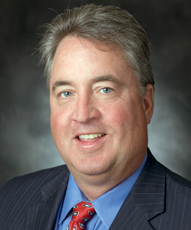
The COVID-19 crisis has been extremely challenging for those organizations and healthcare professionals who offer services to our “at risk” population especially our seniors. Our elderly members of our society continually cope with physical and emotional challenges of aging, but, like everyone, they seek to experience a good quality of life with quality care when they require it.
The COVID-19 time has highlighted for all of us in a unique way the impact of social isolation that many of our elders cope with daily. This point hit home for me when my mom in her 80s thanked me recently just for hugging her and said she missed being hugged. I pondered the fact that with my dad, six kids in our family growing up and her 12 grandkids, this time of “social distancing” is literally changing my parent’s life in the most basic ways. My mom is resilient and, though not her first preference, she has embraced technology in unique ways to enhance their connectedness.
Having been trained and licensed as a certified nursing assistant (CNA), I have total respect for those who choose this path. Along with nurses (two of my sisters chose this career) this army of true passionate professional caregivers is the heart and soul of our healthcare system. Clinical caregivers serve literally on the front lines at full risk of exposure to the virus daily. In my opinion, this career choice is a true calling based on an inherent selfless love for the service of others. This job may be undervalued by the general public, tremendously taxing both physically and emotionally, and underpaid, yet to those who embark upon this career, it seems to be extremely rewarding. CNAs know that their service is a critical need and that a healthcare career is rewarded in a multitude of ways. In this unique time period of COVID-19, on top of all their traditional duties, our clinical caregivers have now become, in many instances, the only “family” that is physically present with loved ones as they struggle to recover.
I’m blessed and thankful to have chosen a career path whereby our company partnered with the American Health Care Association (AHCA) to enable everyone who so desires to become a licensed/certified CNA. Here are three solutions deployed for our current COVID-19 crisis that could positively impact opportunities for healthcare clinical careers as we move forward.
- Telehealth (I prefer to refer to it as “TeleCaregiving”) is a game-changer for both consumer and provider: Most of us would prefer to age in place which includes the setting that meets our care requirements. For many in addition to our private home this includes senior living communities, assisted living communities and even nursing homes. Recent developments have highlighted that provider and consumer services of all types could be accessible to those who need it where they are. Two key elements of expansion are making physician reimbursement for services equal to those of in person visits and allowing practitioners with licenses in good standing to practice across state lines to expand availability.
Having the infrastructure in place for care visits allows its use to be expanded for socialization and family engagement too. A key thought is to expand to “tele”group mental health, “tele”rehab therapy, “tele”education and even “tele”home health. All of the above opportunities are now in practice today during the COVID-19 crisis and we should take the learning from our experiences during this unprecedented time and permanently embrace this technology. For potential new CNA’s, technology is embedded in their daily life so I believe this will attract them to our sector and, in fact, assist us to maximize the benefits as we implement. - Online education has come to the forefront for all learning from elementary schools to universities to corporations. Presently, full 24/7 virtual CNA “online” training is still only approved in 16 states as many federal and state laws were written prior to the online era and thus would require regulatory and legislative modifications. Most states require physical classrooms with set class times and in person instruction. We launched our hybrid online CNA pre-licensure course three years ago with AHCA and have continually pursued approval to deliver our course on a state by state basis. Our course fully incorporates AHCA’s How to be a Nurse Assistant curriculum that has been the basis of in person courses for over 20 years in a majority of the states.
Our model is based on blended learning whereby a portion of the course is completed online at the preference of the student with instructor support while the clinical skills training is done face to face which protects the integrity of assuring that students have proficiency in the required skills. All candidates, whether they take an in person or online course, must ultimately pass each state’s test to become certified/licensed. Universal nationwide approval of online CNA training as acceptable to qualify candidates to sit for state exams will increase candidates. With services businesses being shut down resulting in significant unemployment, there is a potential labor pool of new candidates that may value a career in health care with benefits if completing their qualifications were streamlined. - Federal & state waivers are creative strategies to deploy during a crisis like COVID-19. The effort that the leadership at both the federal and state agencies toward viable solutions even just for this interim period are appreciated. Related to expanding clinical workforce and CNAs, the following are several great ideas that have been proposed:
-Allowing CNAs who were in good standing with licenses that lapsed to be reinstated and waive temporarily the additional training requirement
-Allowing nurse instructors to assist with training based on their professional experience and waive the requirement to complete a Method of Instruction course
-Allowing clinical skills training to occur onsite at provider locations that are now in good standing, but their two-year restriction from training onsite due to a prior regulatory issue may not have expired
-Allowing online CNA pre-licensure/certification training nationwide in all states
-Allowing organizations to employ caregivers that complete a temporary nurse aide or personal care assistant training course to support existing clinical staff during the crisis period. These caregivers would be required to complete approved state training programs and pass licensing testing post-crisis
As the saying goes, this too shall pass, but I view this time as a unique opportunity to benefit from our experiences towards making enhancements looking forward.
John P. Reinhart, CPA, MBA, is the co-founder and president of Academic Platforms. Academic Platforms is the exclusive partner for the American Health Care Association in providing online clinical education focused on nurse aide and CNA pre-licensure training. He is a serial healthcare entrepreneur and an innovator specializing in the senior living and the longevity economy sectors. John is a recent recipient of the Health Care Heroes Award from Business First, Louisville, Kentucky.





